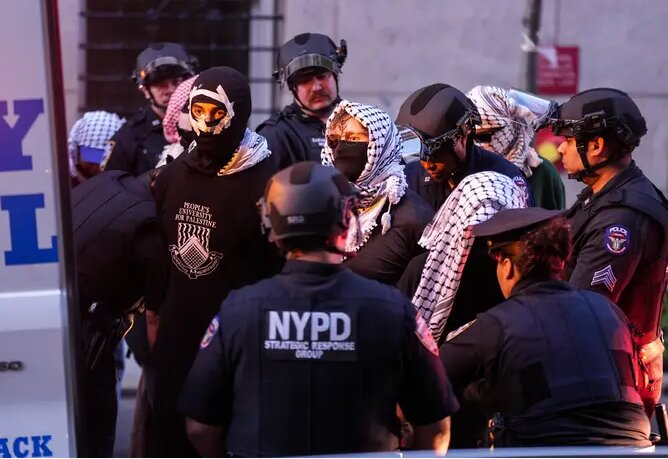Columbia University Takes Action: Over 65 Students Suspended for Library Occupation Protest
Columbia University has recently made headlines by suspending over 65 students due to their involvement in a pro-Palestine demonstration that led to the closure of the main campus library. This significant action has sparked discussions about campus policies and student conduct. According to a school official, the students involved are now subject to an interim suspension.
The university’s decision comes as a response to the disruption caused during the protest. Here are some key details regarding the situation:
- More than 65 students at Columbia University have been suspended.
- The suspensions are a result of their participation in a pro-Palestine demonstration.
- The protest led to the shutdown of the main campus library.
- Students under suspension are prohibited from taking their final exams.
- Access to campus is restricted, allowing entry only to dormitories.
- In addition to the suspended students, 33 other individuals have been barred from campus.
- This group includes students from other colleges and alumni who participated in the protest.
A Columbia University official stated, “When rules are violated and when our academic community is purposefully disrupted, that is a considered choice — one with real consequences.” This statement emphasizes the university’s stance on maintaining order and upholding academic integrity.
The suspensions have raised questions about freedom of expression on college campuses and the balance between activism and adherence to institutional rules. Many students and faculty members are now debating the implications of such disciplinary actions on future demonstrations and academic freedoms.
Columbia’s actions are not isolated; many universities are grappling with similar issues as political activism becomes more prevalent among student bodies. The intersection of education, activism, and the responsibilities of academic institutions is a complex and evolving topic.
In light of these events, it is essential for students to understand the rules and regulations that govern their conduct on campus. Engaging in protests is a fundamental right, but it must be balanced with the responsibilities that come with being part of an academic community.
Here are some considerations for students involved in protests:
- Know the Rules: Familiarize yourself with your university’s policies on demonstrations and protests.
- Plan Accordingly: Ensure that your demonstration does not interfere with essential university operations.
- Communicate: Keep an open line of communication with university officials to address any concerns about your planned activities.
- Understand the Consequences: Be aware that actions taken during protests can lead to disciplinary measures.
- Promote Dialogue: Engage in discussions with opposing viewpoints to foster understanding and reduce conflict.
As the situation at Columbia University unfolds, it will be interesting to see how the university community responds and whether any changes will occur in policies related to student protests. The balance between activism and institutional rules remains a crucial topic for discussion among educators, students, and administrators alike.
In conclusion, while activism is a vital aspect of student life that encourages engagement and discourse, it is equally important for students to navigate the complexities of campus rules and the potential repercussions of their actions. The recent suspensions at Columbia University serve as a reminder of the delicate balance that must be maintained in academic settings.






